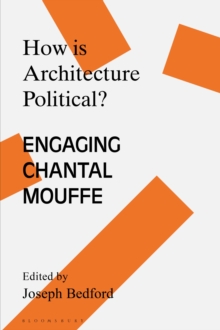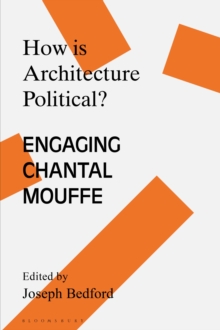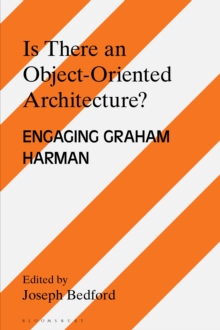
Is there an Object Oriented Architecture? : Engaging Graham Harman Hardback
Edited by Joseph Bedford
Part of the Architecture Exchange: Engagements with Contemporary Theory and Philosophy series
Hardback
Description
Bringing Graham Harman’s philosophy into direct confrontation with contemporary architectural theory in new and creative ways, Is There an Object-Oriented Architecture? provides a dialogue between Harman and six of the world's leading architectural thinkers, Adam Sharr, Lorens Holm, Jonathan Hale, Peg Rawes, Patrick Lynch and Peter Carl.
Harman's object-oriented philosophy is one that sees the universe as a carnival of equal “objects” with no hierarchy between humans and nonhumans.
In his model, unicorns, triangles, bicycles, neutrons, and humans are all things with enduring essences that outlast their partial transformations.
It is a strikingly democratic vision of the universe that knocks humans off their ontological pedestal as arbiters of what is real.
It also radically challenges the very precepts of architectural theory, the structure of which remains stubbornly human-centric as it seeks to give form to the human being’s place at the centre of the cosmos.
In this new book, each thinker develops the implications of Harman's philosophy for the future of architecture by entering into a direct exchange with the philosopher and his thinking, both questioning him and questioning with him.
Information
-
Out of stock
- Format:Hardback
- Pages:200 pages, 10 bw illus
- Publisher:Bloomsbury Publishing PLC
- Publication Date:20/02/2020
- Category:
- ISBN:9781350133457
Information
-
Out of stock
- Format:Hardback
- Pages:200 pages, 10 bw illus
- Publisher:Bloomsbury Publishing PLC
- Publication Date:20/02/2020
- Category:
- ISBN:9781350133457










